The Supported Journey
 |
About the presenter: Joe Klein, Ph.D., CCC-SLP, is a person who stutters and an Assistant Professor in Communication Sciences and Disorders at Appalachian State University in Boone, NC. He teaches classes in fluency disorders, has presented nationally at ASHA, Friends, and The National Stuttering Association, and has published articles about stuttering in peer-reviewed journals. |
The Supported Journey
by Joseph Klein
from North Carolina, USA
INSTRUCTIONS: Listen to the audio and follow the pictures below. Then read the text at the end of the pictures. Be patient while the audio loads
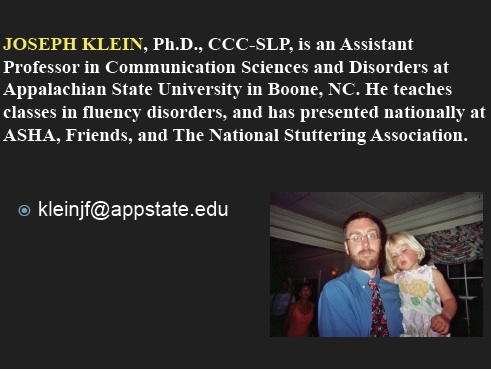 |
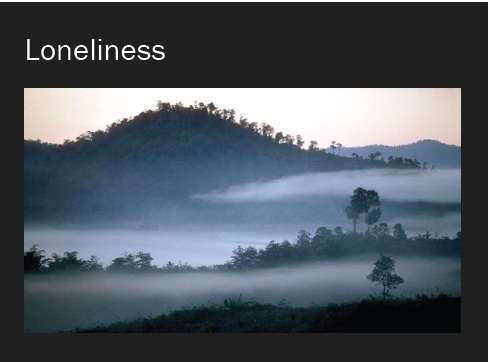 |
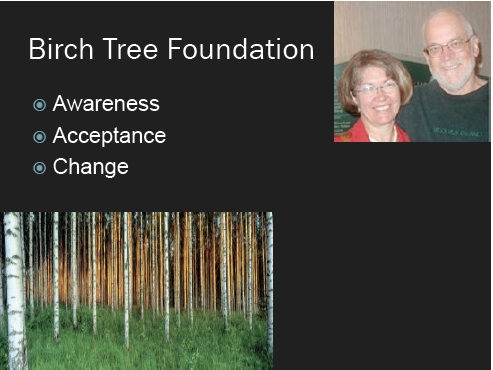 |
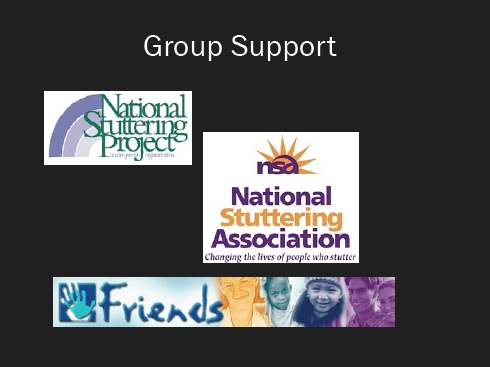 |
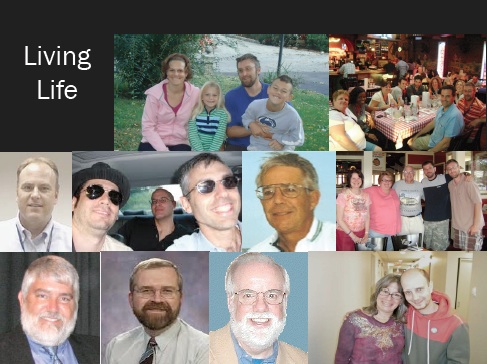 |
The Supported Journey I have been telling my stuttering-life story for approximately fifteen years. I have told my story to graduate and undergraduate communication disorders classes, to local and national support groups, and to local and national speech-language pathology groups. I have told my story on television, on www.stuttertalk.com, and at previous ISAD conferences. Telling my story at the 2011 American Speech-Language-Hearing Association (ASHA) Convention with seven other SLPs who stutter was perhaps the best experience of all.
As a person who stutters, telling my personal story is still a powerful experience. It requires two things (telling a story in front of a group and talking about stuttering) that for the first twenty years of my life seemed impossible. Each time I tell my story, I chip away just a bit at the shame that has been inside me since I was a little boy. I also have the satisfaction that I have given my listener a taste of what it is like to be someone who stutters.
I have no doubt that this was a powerful experience for all of the speakers. Being a part of this group as we told our stories, however, was perhaps most powerful for me. The theme of my story of ongoing recovery from the negative attitudes and feelings involved in stuttering is one of support. I have been supported by speech therapists, by friends, by family, and, maybe most importantly, by other people who stutter. It has been my involvement in support groups, especially The National Stuttering Association and Friends: The National Association of Young People who Stutter, that has made the greatest difference in my journey.
The hardest part of telling my story at this convention was feeling a tremendous amount of time pressure. It is hard enough to tell your life story in a limited amount of time, but to be a stutterer and tell your story in a limited amount of time is especially difficult. There was so much information and stuttering that I wanted to convey in such a short period of time.
One of my strategies for public speaking is to include voluntary stuttering, especially at the beginning of my talks. I was able to do that in this presentation, and that was helpful. I wish I had done more of that, but I also wanted to model some easy stuttering. And I wanted to tell my stuttering-life story, all in a few minutes! When I listened to the recording of the presentation (for the first time) in order to write this paper, I could hear myself speeding up at the end and losing some of the (relatively) relaxed moments of stuttering that I had towards the beginning. I also had some real, honest-to-goodness, non-easy and involuntary moments of stuttering. I consider all of these to be successful. The voluntary stuttering and easy moments of stuttering were successful because I was able to be in control of my stuttering. The hard moments of real stuttering were a success because I gave myself permission to stutter. Anytime that I am saying what I want to say the way that I want to say it is a success, stuttered or not. For too long, I would change words to not stutter, and would say different words and different ideas than I wanted to. Perhaps saying what I want to say AND stuttering is the greatest success of all.
Talking to people about stuttering is wonderful. I encourage others who stutter to do the same. It tears away a little bit of shame and educates others at the same time. But the most important advice that I have for people who stutter, parents of children who stutter, and the therapists who work with them, it is to get involved with other people who stutter. The National Stuttering Association (www.nsastutter.org), Friends: The National Association of Young People who Stutter (www.friendswhostutter.org), and Our Time Theatre Company (www.ourtimestutter.org) and camp (www.campourtime.org) are a few of the organizations that I have been a part of that have had an impact on my life and the lives of others. And there are other good organizations out there, even Facebook groups related to stuttering, where people who stutter can connect and not feel so alone.
I would like to thank Judy Kuster and all of the presenters for this amazing opportunity. Tell your story, get involved, and stutter!
SUBMITTED: August 28, 2012

